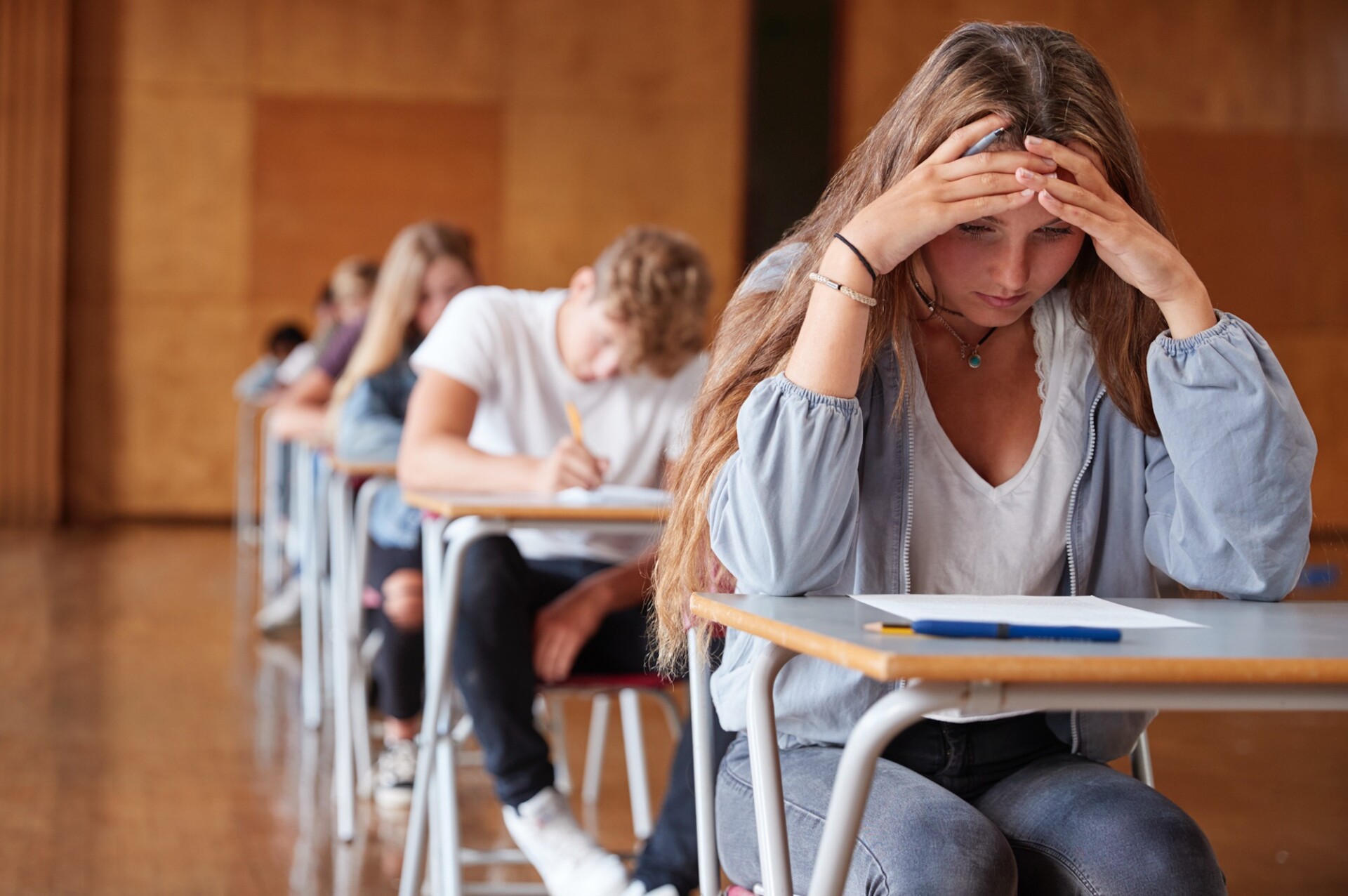Today is GCSE results day, and while for some this will be a cause of celebration, many still question whether these exams are worth the stress they cause for pupils. A new survey by the Association of School and College Leaders union found that three-quarters of teachers said they were forced to lay on additional provisions for GCSE pupils due to exam anxiety, with over half contacted by parents who worried their child wasn’t coping with academic pressure. Just under half reported that their pupils experienced physical reactions to the stress of exams, while 65% said it led to students skipping school.
Two things seem to be happening simultaneously here. The first is that, for many pupils, normal levels of exam nervousness are being mislabelled and misdiagnosed as anxiety. Of course GCSEs are nerve-wracking, and some worry, stress and physiological reactions are all to be expected. In no other situation in life will students sit so many exams in such quick succession: a pupil studying 10 subjects may be taking around 25 exams in the space of four to six weeks, and we should not underestimate what an undertaking this is.
It is also all too easy to robotically complain about how much “harder exams were back in my day”, but GCSEs are still difficult, either because they are conceptually taxing or incredibly content-heavy. Take GCSE English Literature, for instance: for this one subject students are expected to learn quotations from a 19th-century novel, a Shakespeare play and a modern text, as well as 15 poems. They then need to write essays in which they analyse these in detail, while incorporating context and some sense of personal response, all in around 45 minutes. For the average 16-year-old this is, unsurprisingly, a daunting prospect.
Yet too often we pathologise these pre-exam nerves rather than put them into perspective. We should be teaching students that, in the vast majority of cases, a degree of anxiety is proportionate to the challenge at hand. Nerves are normal, not something to be feared, and can be managed through coping strategies such as breathing exercises, eating and exercising well, regular breaks and good sleeping habits. Too often, however, students are spooked into believing something is fundamentally “wrong” with what they are experiencing, and therefore look for a quick “fix” for their feelings.
The second situation at play is the ever-pernicious attendance crisis, which both creates and exacerbates genuine mental health problems in pupils. Students who have severe anxiety are more likely to miss school, and this avoidance inevitably leads to more anxiety and reinforcement of certain beliefs — “I’m better off staying at home” — which leads to worsening attendance. This is particularly problematic for GCSE pupils: this year, more than a quarter of Year 11 pupils were persistently absent, missing over 10% of lessons, which remains around double the pre-pandemic rate.
This inevitably impacts results: only around 36% of pupils who are persistently absent get five good GCSE grades, compared to around 78% for those who are rarely absent. This is unsurprising given that these pupils not only miss curriculum content, but also other opportunities to mentally prepare themselves for the ritual of exams, such as class tests, mock exams and revision sessions. The only way to break this vicious cycle is to get students back into school, so we can build up their confidence and desensitise them to the stress of exams. This can only be done through exposure, not evasion.











Join the discussion
Join like minded readers that support our journalism by becoming a paid subscriber
To join the discussion in the comments, become a paid subscriber.
Join like minded readers that support our journalism, read unlimited articles and enjoy other subscriber-only benefits.
Subscribe